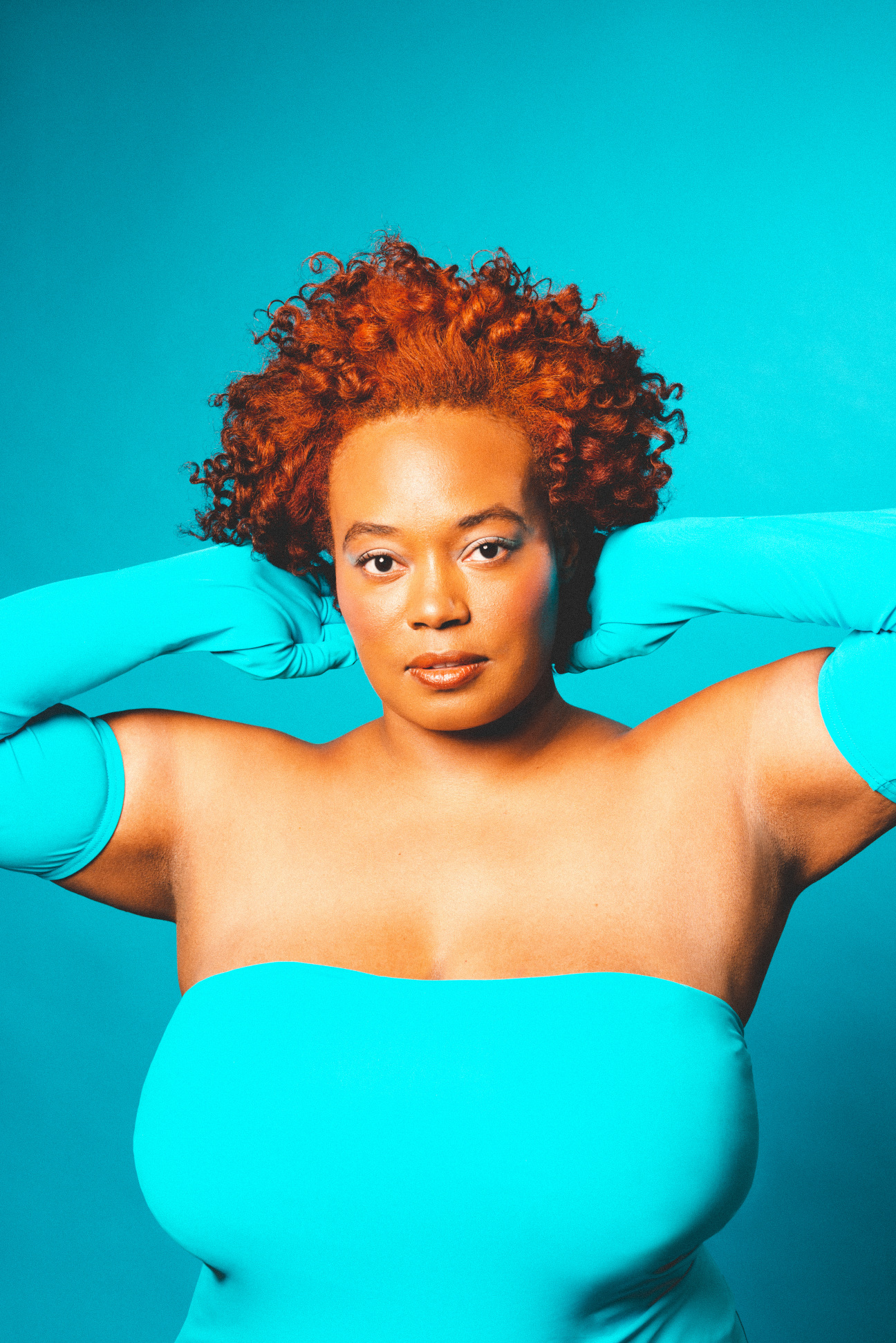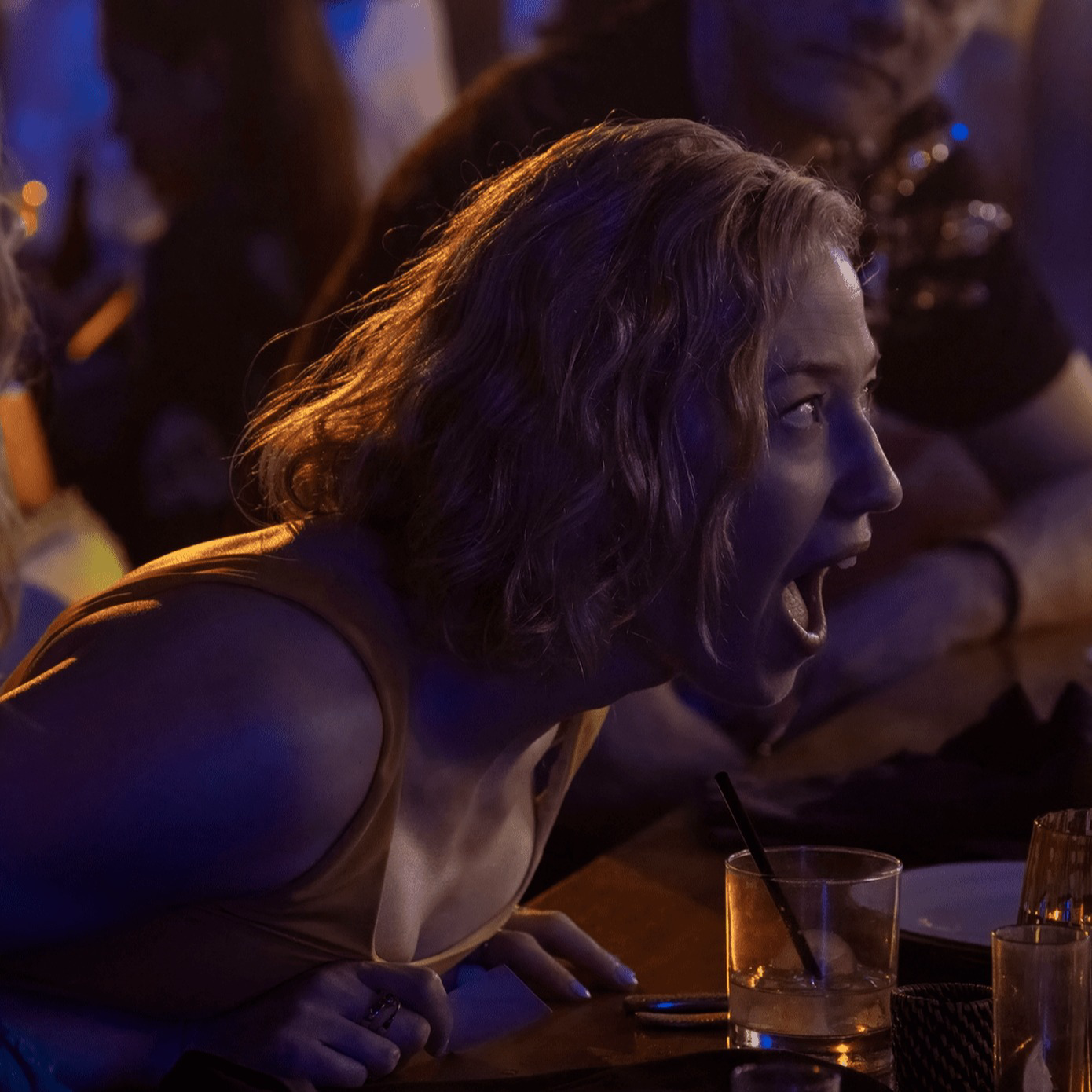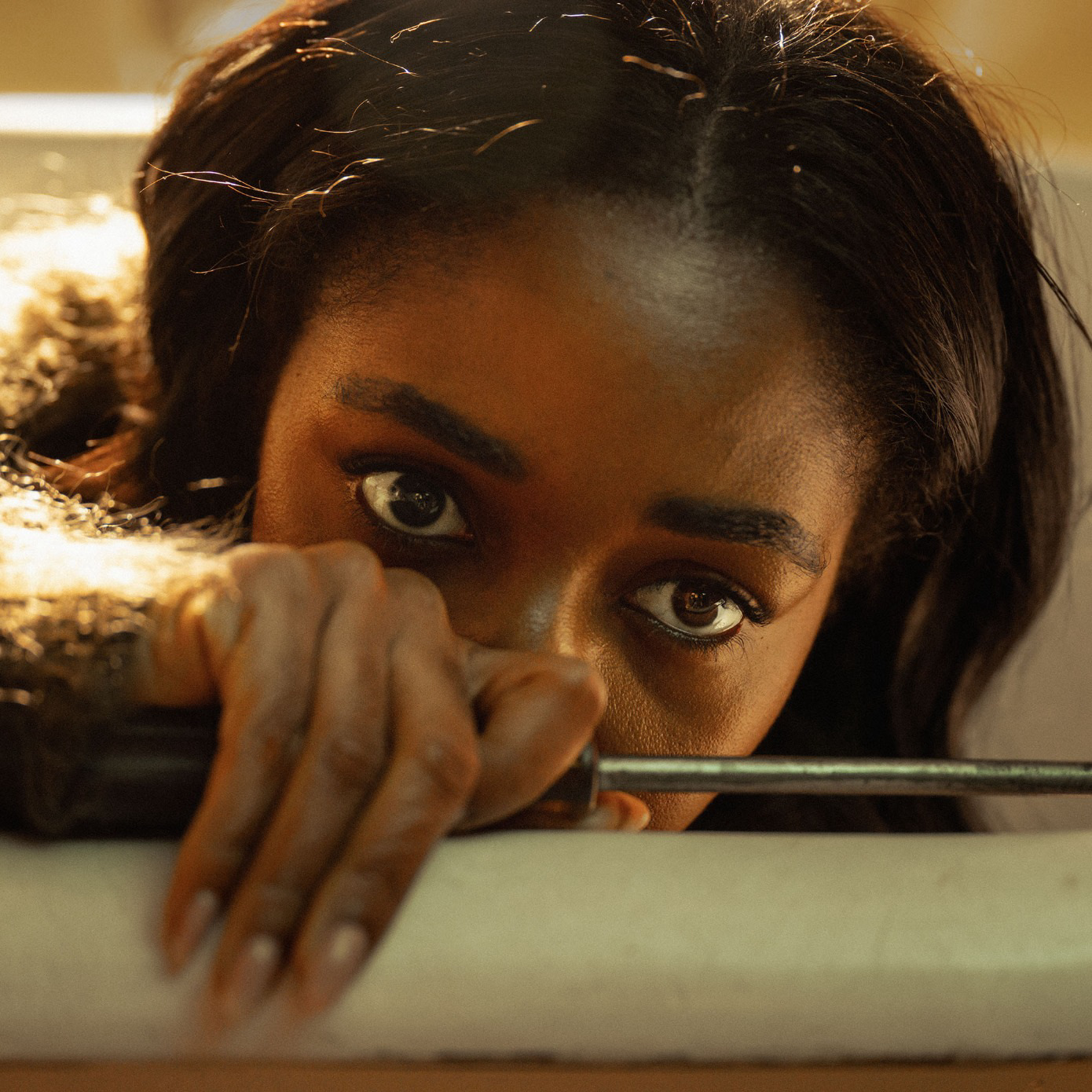
Numa Perrier is making romantic comedies for the genre’s devotees—and its skeptics—alike. After years spent cutting her teeth on the indie circuit, The Perfect Find, her first studio-backed feature, premiered at this year’s Tribeca Festival and made its move to Netflix last week. The film stars a down-on-her-luck Jenna (played by Gabrielle Union), who falls for Eric, her much-younger coworker (played by Keith Powers). As a student of the rom-com format who took inspiration from classics like When Harry Met Sally, Roman Holiday, and Mahogany, Perrier knows the formula for crafting one that is, for all intents and purposes, perfect. But relationships are complicated, and for Perrier, the best narratives are those that embrace the mess.
CULTURED: What draws you to the rom-com genre? Do you think it’s overly formulaic?
Numa Perrier: I'm always drawn to humor and intimacy. No matter the genre, I want to find the humor in a situation—and find some levity. I've liked so many rom-coms over the years, but they’re expected to conjure a specific feeling, and they’re always put in a box—like, “Oh, I'm watching a rom-com now.” I think it's a feeling that film lovers have been missing—that nostalgia, chemistry, a guaranteed happy ending. I felt some resistance to parts of the genre, because I'm always looking for a little bit of edge.
This story features a big age gap and some workplace dynamics that was just enough to feel like, "This is nice and messy." I really wanted to make a crowd-pleaser for the culture. All of my decisions were really dictated by that—if I can please myself first, then there will be a domino effect.
CULTURED: Did that “pleasing yourself first” mindset take a long time to develop, or have you always approached your projects that way?
Perrier: I think it's been threaded into me because I had a childhood that wasn't pleasing. I didn’t have control over my own pleasure—what I liked, what I wanted to do, how I wanted to express myself as an artist, even understanding that I was an artist. I made a concerted effort once I started making films and making art overall to do what pleased me first so I could stand behind it completely. I found that, if my work pleased me, it would probably please a friend, and it might please their friend. You find your community and your people that way.

CULTURED: What are three ingredients that every rom-com must have?
Perrier: You gotta have chemistry. You gotta have laughs. And you gotta have a mess, because aren't we all so clumsy when we fall in love? You need that mess in there because you need something to root for. Another thing is great music. It sews you into each moment. We have such a visceral response to music.
CULTURED: You mention chemistry. How did you ensure that your cast has it?
Perrier: Chemistry is important no matter what. In my first film, Jezebel, which is a love letter to sisterhood, there had to be chemistry between me and my lead actress, Tiffany Tenille. We clicked when we first met, but you have to know how to nurture that chemistry. I apply the same idea when casting a steamy romantic film. I look for it in small ways that I don't tell my actors about: how close they stand when they’re talking, whether they seem to naturally gravitate into each other’s space, if they seem at ease when I'm not prompting the conversation in some way.
Keith Powers and Gabrielle Union had it from the jump. It helped that they already knew each other, but that's not a guarantee either. You have to be willing to milk whatever chemistry you do have; they were so willing to go there and allow themselves to fall in love as characters on set–really lean into the world that we built. You have to know how to spot that.
CULTURED: How does your work as an actor change your perspective when you're behind the camera?
Perrier: Oh, it offers me so much. There are a lot of directors that don't like actors very much—actors get disrespected a lot, and I've never understood that, even before I started directing. Like, why do you resent the very people that bring your work to life? When I started to direct, I always brought love, compassion, and a sense of play to every actor that I work with. No matter what their method is, I respect it. As an actor, you don't always know when you're good, you don't know when you're bad. When you let yourself fall into the character, you can really surprise yourself. It’s fun to be the maestro overseeing that magic and moving it around.

CULTURED: The film is based on a book by Tia Williams. How did the adaptation process shape the filmmaking?
Perrier: Back to my acting training, when you're doing the work of building your character, and something is based on a book, you read the book, you read interviews with the author. You try to understand the author's point of view, even if you have a script. It can give you an extra layer to make your performance deeper. I apply the same idea to directing. Tia's book served as a great anchor if anything started to feel slippery or if I ever felt lost. I can look at a passage in a book that’s so poetic, and then I always ask myself, What's the visual language for that? It's not easy to translate, and sometimes you can’t. But you can use your imagination to craft the world you’re envisioning as you read those words. That's what we did along the way.
CULTURED: Does it still feel subversive to show a romantic relationship between a mature woman and a younger man in a film?
Perrier: There's a conversation evolving right now around generation gaps and their power dynamics. Why would someone date someone much younger than them? When it’s the woman who’s older, is it different? Why? I don't think this film answers any of those questions, but I love that it's stoking the conversation.
CULTURED: You've talked a bit about mess–in your director's statement, you say that everyone deserves the chance to make bad decisions, and bold decisions. Are there any in your life that stand out?
Perrier: So many, from relationships to careers. I've tried on different shades of what it looks like to be a powerful woman—you know, what do I actually look like? What do I wear? How do I sound? All of those things are in building your character and your persona. What does a successful director look like? Does anything about me change or am I the same?

CULTURED: There's this idea that the more successful a person is the more inaccessible they need to be, particularly for women. Do you experience these kinds of expectations?
Perrier: Absolutely. When my first film came out, I was taking it around the country to different film festivals. A lot is coming at you, and a lot of people want advice from you. But how do you moderate that? How much can you give in a moment and still keep things moving on your side? As my team gets bigger, there are more people around me who act as a kind of buffer. I'm still getting used to that, but I always want to be accessible. I think a big part of my success comes from how close I am to my community, and I have no sense of belonging without that.
CULTURED: What are your cinematic inspirations for this film?
Perrier: The classic romances of the '50s, like Roman Holiday and Breakfast at Tiffany's. Also Boomerang and Two Can Play That Game. I get a lot of joy from how tight and funny, how well-structured, and how Black they are. I also have a bit of Spike Lee's School Daze in my film—the Black opulence and the beautiful set pieces throughout it are an inspiration to me. But visual artists are my first circle of inspiration. Carrie Mae Weems and Louise Bourgeois and the worlds that they've built are inspirational to me—the sensuality, the intimacy, the exploration of family, all of that.
CULTURED: In the press circuit for this film, is there a question you were bracing for that your weren’t asked much?
Perrier: There was a question that I was asked a lot on my first film that I’ve hardly been asked on this film, and I love that it’s faded away. No one has asked me, “What is the plight of the Black woman filmmaker?” I'm so happy I've gotten to talk so much more about process. I mean, you're asking me questions that are about my identity and how it connects to filmmaking, how I see craft as an actor and a director. These are the things I want to talk about. Now, I get to talk much more about the details of the process. I could do that all day.




